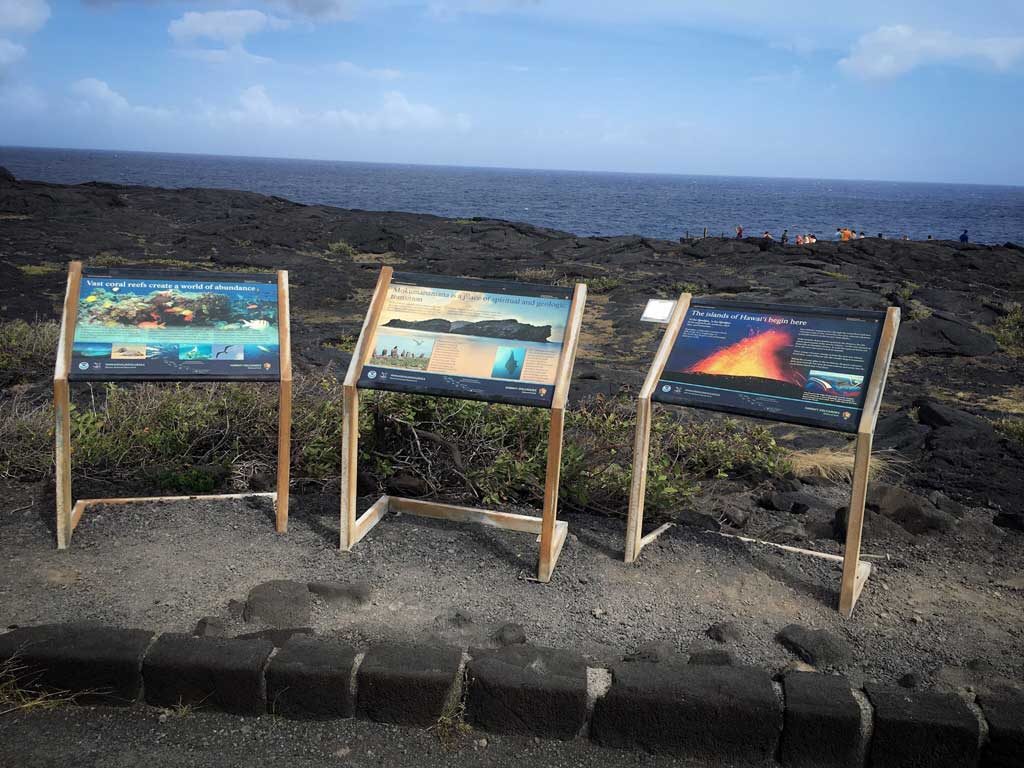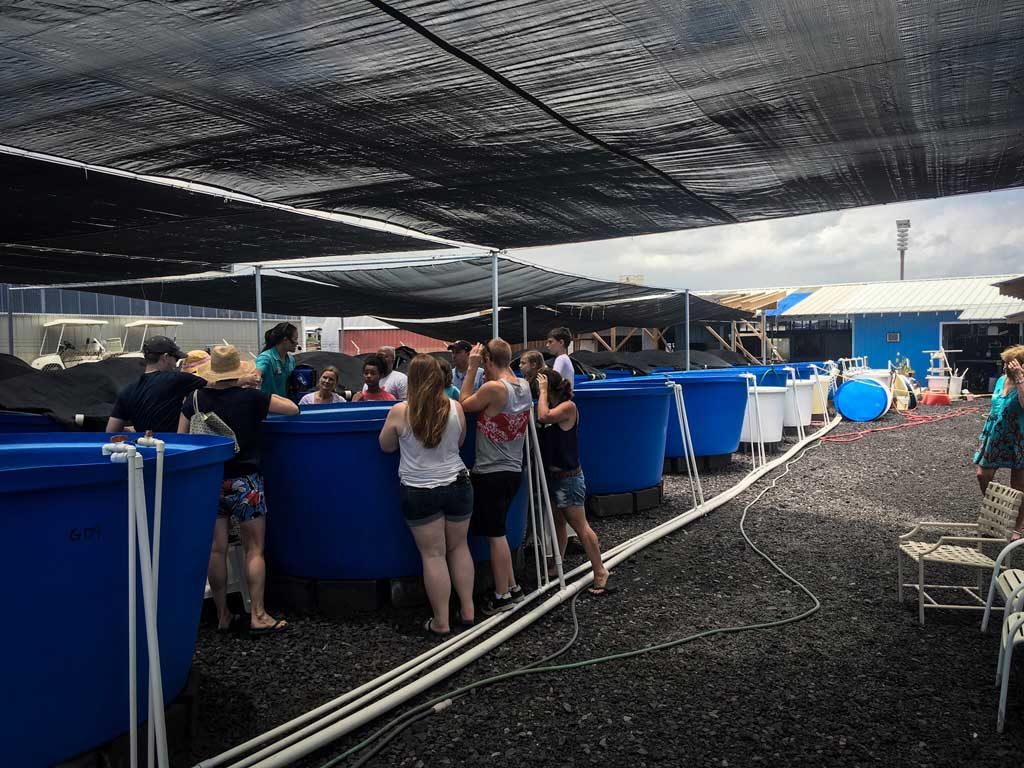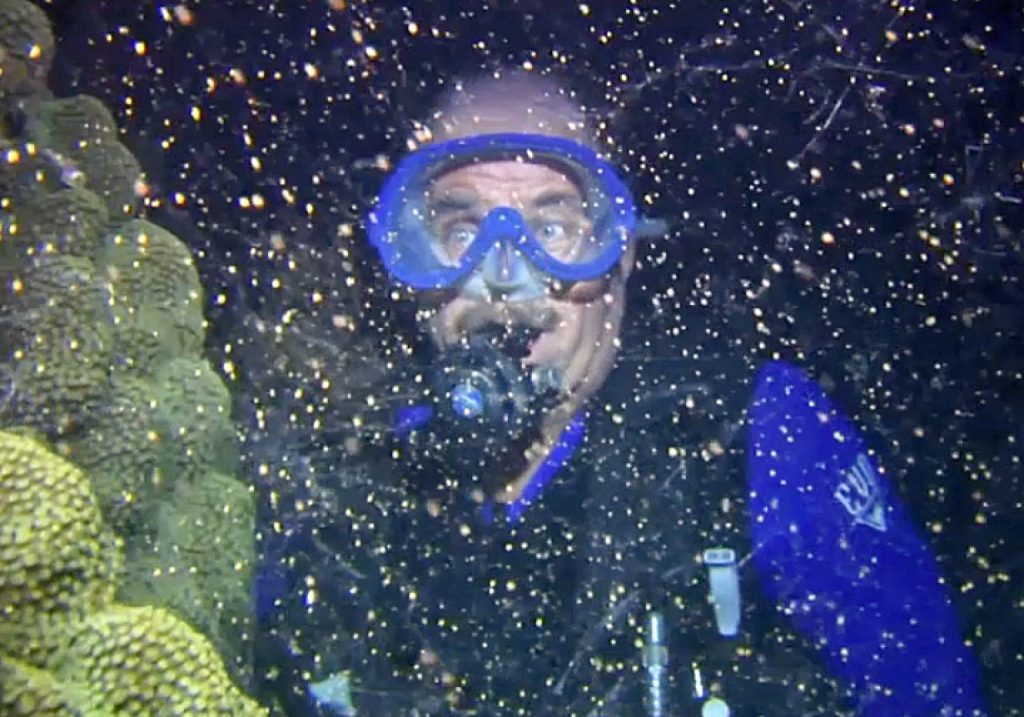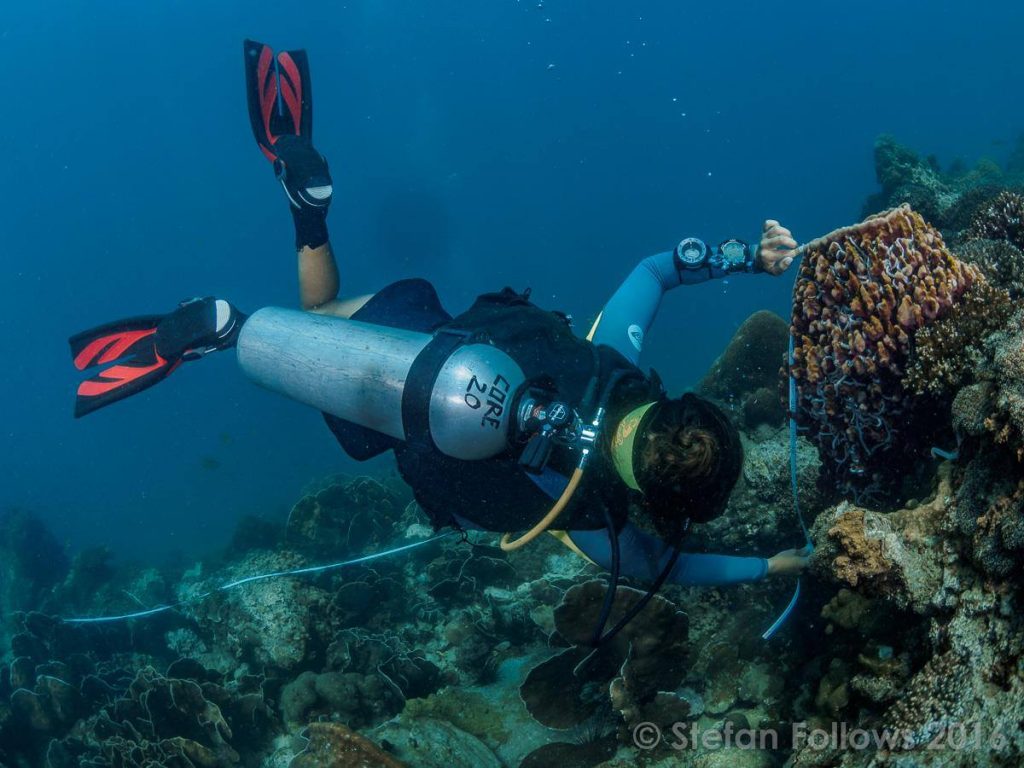One of the most inspiring things one can do,
especially when one is inclined towards preserving the wonders of the natural persuasion, is to visit places and people that actually hang out in nature and preserve it.

The view at a place of people, that hang out in nature and preserve it. I actually crossed the Pacific for this #smh
While this certainly seems boring and not very inspiring (it’s basically visiting yourself in a different climate, with different food, and everybody seems to be screaming a lot), it’s actually not, and I will try to explain why in a second.

Hold on, this is people doing weird things. Such inspiring.
But first, let me talk about something else that’s terribly inspiring, and this might not be self-explanatory on a glance.
Laws.
Yes, laws. We all learned to love and cherish them as tools for human cooperation, for example they stop this one guy from throwing his garbage in your organic herb garden, and they stop the slightly weird guy over there from harvesting your skin for a rather outdated religious ritual. At least they should. Some laws might not be as self-explanatory, like ‘Sir! You can’t smoke this plant! But this one is fine. But Sir! You have to be 20 feet away from this building, that fence, and this air-vent before you light this plant up!’
But hold on, you came here because I said in the title that good things can be bad, and bad things can be good, so where is the Wreck-it-Ralph™ (Disney corps.) reference? Here, but give me a sec, I’ll get to it in a moment.

Why does this image remind me of me and my wife? Should I work out more? [Source]
Like Mom’s Law (‘It won’t get better if you pick at it’), or The David Hasselhoff’s Law (‘no swimming for 20 minutes after food’), or sod’s Law, Murphy’s Law etc.
The specific law that tells us that ‘good can be bad, and bad can be good, and that’s not bad’ is called ‘The Law of Unintended Consequences’, but a much better name, IMHO, is ‘Wreck-it-Ralph’s Law’.
It goes like this (from Wikipedia [source])
In the social sciences, unintended consequences (sometimes unanticipated consequences or unforeseen consequences) are outcomes that are not the ones foreseen and intended by a purposeful action. The term was popularised in the twentieth century by American sociologist Robert K. Merton.
Unintended consequences can be grouped into three types:
- Unexpected benefit: A positive, unexpected benefit (also referred to as luck, serendipity or a windfall).
- Unexpected drawback: A negative, unexpected detriment occurring in addition to the desired effect of the policy (e.g., while irrigation schemes provide people with water for agriculture, they can increase waterborne diseases that have devastating health effects, such as schistosomiasis).
Perverse result: A perverse effect contrary to what was originally intended (when an intended solution makes a problem worse). This is sometimes referred to as ‘backfire’

This is a relaxing image, because of the dense material you’re reading.
Ralph’s law is pretty well described and some examples are actually sort of hilarious, like tourists drinking all of Cuba’s beer, a law that was supposed to protect women getting everyone fired, and you probably have tons of anecdotes of how stuff backfired in your face, singing your eyebrows, and then getting told off by mom.
When you do nature conservation as a hobby, you might stumble across more specific examples, like management actions threatening the deer population of a national park, shark conservation actions bringing a ray species close to extinction, here are some more ‘funny’ examples and a great write up.

You WHAT, mate? [http://4.bp.blogspot.com]
Hold up, before we tumble further down the rabbit hole, let’s have a [TRIGGER WARNING: offensive to some folks]
Now, just imagine the following, coral restoration projects (one of my jobs) might actually, because a few unfortunate, unlikely factors coming together, create something that one could call gay clone-army reefs, if that one was a little bit cynical, and had too much coffee. Or is totally inappropriate, as I might be.
But Sir! Great people are doing great things!
Yes, obviously So, let me repeat that, in my very humble opinion, coral restoration might have unintended consequences, too.
Let’s take a quick look at the traditional method: coral propagation with fragments.
You put call fragments in a ‘nursery’, let them grow to full colony size, break off a fragment for future use, and replant it into the natural reef. Then repeat, and repeat, until you have filled up the natural reef with colonies.
This is an ingenious idea, if you ask me. We capitalize on the asexual ‘cloning’ capabilities of corals, so with some elbow grease, you actually restore a complete reef from as single, thumb sized piece of coral, and that’s pretty damn cool. We’ve been doing this kind of ‘gardening’ for a long time, a lot of plants are actually used like that to produce food for us. But that’s like botany, so not my department. (Did I spell botany correct?)
Now unfortunately, because #GeneticDiversity, a reef full of clones might be as un-good, as a city full of Agent Smiths in The Matrix™ (The Wachowskis). It could lead to consequences nobody intended, like reduced disease resilience, or the reduction of ecosystem services, or the lack of functional redundancy, to quote a few technical terms.

Not the Smiths you were looking for [http://www.myfourthirds.com]
But I also said gay, which is like super offensive to some people, don’t you know that?
Well, let me explain. Corals, like you and me, actually have a sex, they can be genetically male or female. Since it’s notoriously difficult to take a peek at a corals junk, and super inappropriate, we normally have no idea about the sex distribution in our nurseries.
So it is technically possible, it’s actually down to chance, that we artificially create a reef consisting exclusively of girls, which throw their eggs at each other during spawning. To me this is a bit gay, because this is technically a homosexual system, a same-sex relationship, and I’m currently writing a sensationalist opinion piece. And have you seen spawning? Yuck, dude.

Spencer Slates watches a coral head off Key Largo in the Florida Keys National Marine Sanctuary releases gametes late Monday, Aug. 27, 2013, during an annual ritual called coral spawning that provides coral reefs the opportunity to reproduce. Photo by Frazier Nivens, Florida Keys News Bureau.
Now while this is all certainly very uplifting, especially for myself, who has actively created gay clone-armies, there is some good news.
It doesn’t have to be like that. We might actually be able to help natural reefs to restore themselves to a, in lack of a better word, natural state.

A close approximation of effort, diligence and patience [https://www.facebook.com/KohPhaNganPhotographic/]
But it will take effort, diligence, and patience. Loads of patience. Because good stuff takes time. Which, in the light of the current global coral reef decline, might be very hard to swallow.
At least for me.
Yours truly
H.S

MARINE RESEARCH

MARINE CONSERVATION

GET INVOLVED

Hektor Schroeder
Opinionated Author
Hektor is a 29 year old PhD student from Swartkopsmund, Namibia (that’s in Africa). Hektor studies marine ecology at a renowned University somewhere else. He has opinions, which he likes to write about, and that’s what an opinion piece is That’s currently all the information he’s currentlyprepared to share. And we’re like totally chill and understanding. As you are.
%
Percentage of People offended
People giving a rat's arse
- Change created 1%
- Coffee drunk 99%
- Synonyms mangled 66%
- Bar counters overused 100%
- Lung Cancer Probability 60%
No Results Found
The page you requested could not be found. Try refining your search, or use the navigation above to locate the post.
